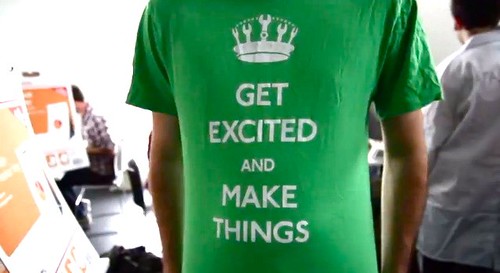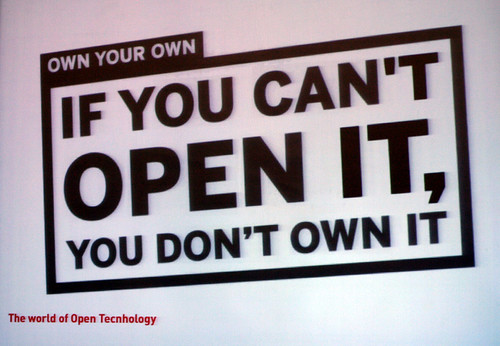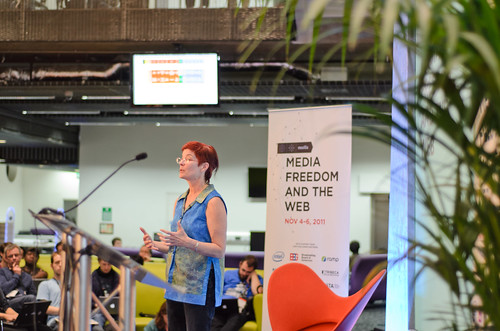
Mozilla’s Mitchell Baker spoke recently about an interesting shift we’re seeing in technology — a shift from the web as a “maker’s world” that actively encouraged tinkering, tweaking and getting your hands dirty, to an era of “elegant consumption” that’s increasingly about one-way reception.
As she points out, that shift isn’t necessarily bad — but it does open up new opportunities and challenges, and a role for Mozilla to act as convener and gathering point for “web makers” — people who bring the same energy and fulfillment from making things in the physical world to the web.

Who will tweak the tweakers?
It’s interesting to note that the main talent of icons like Steve Jobs arguably lay in tweaking other people’s ideas — a legacy that his most famous products now inherently discourage. As Malcolm Gladwell argues in The Tweaker: The Real Genius of Steve Jobs: “Jobs did not want the iPhone and the iPod and the iPad to be opened up and fiddled with, because in his eyes they were perfect. The greatest tweaker of his generation did not care to be tweaked.”
Video of Mitchell’s entire 4-minute keynote is here, courtesy of Air Mozilla.
Some excerpts from Mitchell’s keynote:
In the early days of the web, it was a maker’s world. One of the reasons the web exploded was that it didn’t matter what page you went to — you could look at it, see what made it, and use it yourself. And so the first generation of the web was all about making.
Recently we’re seeing that start to change. Today, much of the web is about consumption. How much can we consume, and how elegantly can we consume it? I think of the iPhone and iPad series as today’s pinnacle of “elegant consumption.” They’re not particularly about teaching you to create, though they can be used for that. But the core thing that draws us to them as consumers is that they’re beautiful, they’re easy to use, and we can consume what we’re interested in through them.
At the same time, the maker aspect remains strong among some sets of people. And for those of us who are drawn to it, or live it, or enjoy making things in other aspects of our life, we find something both self-empowering and fulfilling in being able to look at the internet and the web and take it apart when we want to.
There are a number of people in our world who don’t understand that the web is just like physical objects — with some understanding and some fun and some learning, you can take it apart. You can be transparent. It doesn’t have to be secret, arcane or scary.
So part of what we try to do at Mozilla is break down that barrier. And try to bring that maker ethic that many of us are familiar with in the phsyical world, into the online world as well. It’s equally possible. It’s equally rewarding when you learn it. And it opens a vast array of new ideas.

If it weren’t for tweaking, tinkering, and tearing things apart to put them back together again, I wouldn’t know much about anything both on and offline.
Great point. Maybe the whole world works like one giant open source project, but just doesn’t realize it yet. 😉